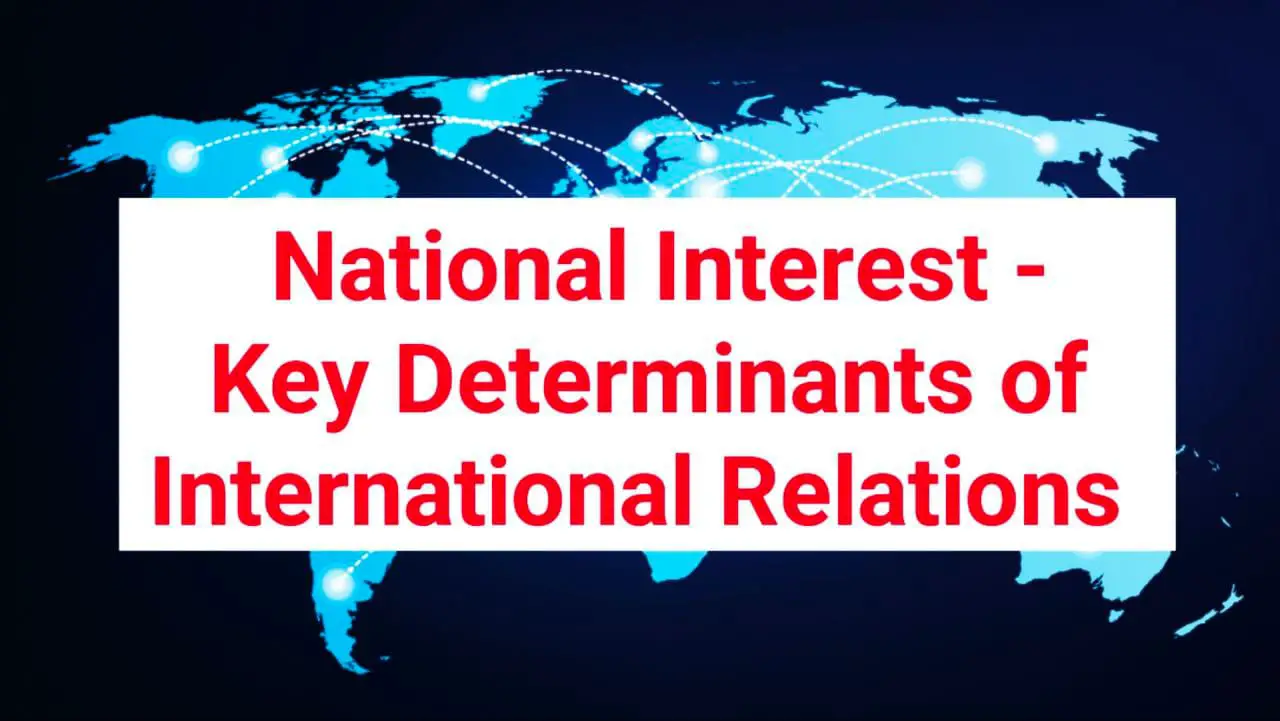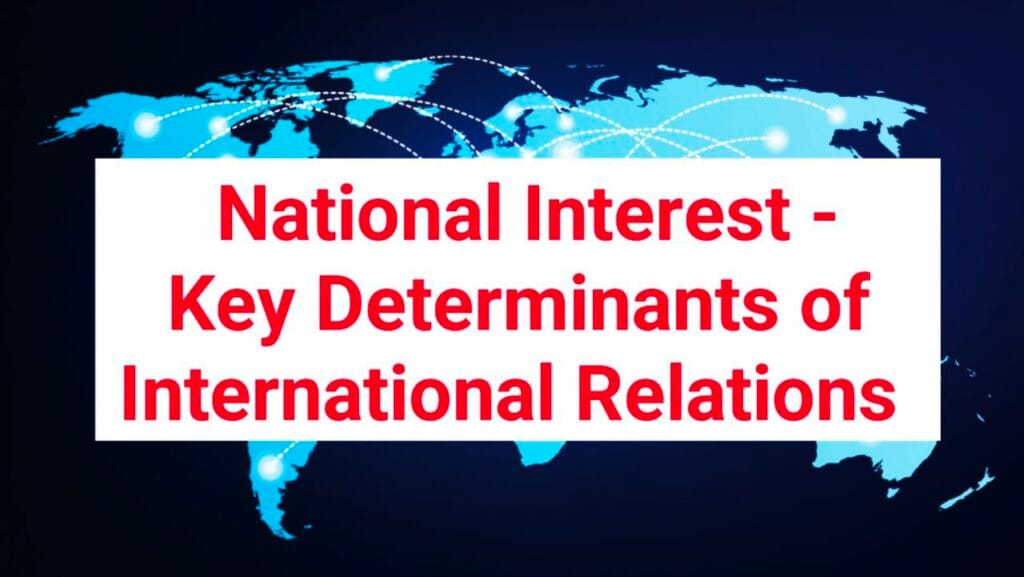

The concept of national interest is a fundamental principle in international relations (IR), guiding states’ foreign policies and interactions with other global actors. It refers to the goals, objectives, or aspirations a country seeks to achieve, protect, or promote in the international system. Several key determinants shape a nation’s understanding and pursuit of its national interest, influencing its foreign policy decisions and international relations.
Key Determinants of National Interest in International Relations
- Security
- National Security: The foremost priority of any state is safeguarding its sovereignty and territorial integrity. Countries develop defense strategies, military alliances, and counterterrorism measures to protect against external threats.
- Survival: Ensuring the survival of the state, especially in the face of military or existential threats, is a critical component of national interest.
- Deterrence: Many nations build up their military capabilities to deter potential adversaries from attacking, contributing to stability through a balance of power.
- Economic Prosperity
- Trade and Commerce: States strive to enhance their economic well-being through international trade, access to global markets, investment, and the protection of trade routes.
- Resource Acquisition: Nations seek to secure essential resources, such as energy, minerals, and food, to sustain their economies.
- Development: Economic development, technological advancement, and maintaining competitiveness are vital components of a country’s national interest, often driving trade agreements and economic partnerships.
- Geopolitical Influence
- Strategic Location: Geography often plays a critical role in shaping national interest. States located near strategic chokepoints (e.g., straits, canals) or important regions (e.g., the Middle East for energy) prioritize control or influence over these areas.
- Regional Hegemony: Many nations seek to dominate or exert influence within their regional sphere. This includes projecting power, shaping regional politics, and ensuring stability to safeguard national interests.
- Ideology and National Identity
- Political Ideology: A state’s political ideology, whether it is democratic, authoritarian, or otherwise, influences its national interest. Democracies may promote human rights and democratic governance, while autocracies may emphasize regime stability.
- Cultural Values: National identity, history, and culture shape how states perceive themselves and their role in the world. For example, a state might prioritize the protection of its cultural heritage or the promotion of specific ideological values abroad.
- Military Power
- Defense Capabilities: The military strength of a nation is often a critical determinant of its ability to pursue its national interest. Nations with significant military power may seek to assert their influence globally or regionally.
- Alliances: Strategic military alliances (e.g., NATO) are key instruments for advancing security interests, deterring adversaries, and protecting national sovereignty.
- Diplomacy and Soft Power
- International Cooperation: Many states pursue their national interest through multilateral diplomacy, participating in organizations like the United Nations (UN), World Trade Organization (WTO), or regional bodies like the European Union (EU).
- Soft Power: Nations also promote their interests through soft power—cultural diplomacy, international aid, or promoting their values (e.g., democracy, freedom of speech), which enhances their global image and influence.
- Global Challenges
- Climate Change and Environmental Security: As environmental issues like climate change, deforestation, and water scarcity affect global stability, many nations now view environmental sustainability as part of their national interest.
- Transnational Threats: Challenges such as terrorism, organized crime, cyberattacks, and pandemics transcend borders and increasingly shape how states define their national interests.
- Technological Competitiveness: Technological innovation in fields like artificial intelligence, cybersecurity, and space exploration is becoming a key aspect of national interest as states seek to maintain competitive advantages in these areas.
- Economic Globalization
- Global Interdependence: As globalization deepens economic interdependence, many nations focus on establishing trade networks, protecting intellectual property rights, and participating in global supply chains to secure economic interests.
- Development Aid and Economic Diplomacy: Providing foreign aid and participating in global economic institutions are methods countries use to secure favorable relations, advance development goals, and protect economic interests.
- Public Opinion and Domestic Politics
- Public Influence: Domestic opinion can significantly influence a nation’s foreign policy priorities. Politicians may align their international strategies with public sentiment, especially on issues like immigration, foreign wars, and trade.
- Leadership and Political Elites: Political leadership and the views of governing elites shape a state’s foreign policy approach. Leaders often define national interest based on their political agenda, ideology, and the need to maintain power domestically.
Conclusion
The concept of National Interest is multifaceted and shaped by various determinants, including security, economic prosperity, geopolitical considerations, political ideology, and global challenges. These determinants help define how states interact with one another, driving cooperation, competition, conflict, and diplomacy in the international system. Understanding the determinants of national interest allows us to better comprehend state behavior and decision-making in the complex world of international relations.







